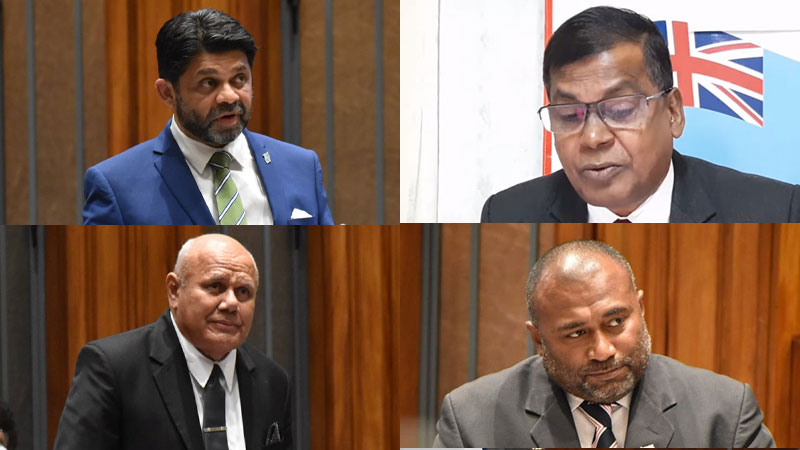
The Public Health Amendment Bill has been passed unanimously by Parliament which aims to bring in fines for offences which may include the failure to wear an appropriate face covering or present the careFIJI mobile app on entering business premises, or the failure to comply with mandatory curfews, physical distancing requirements and capacity restrictions for gatherings, events, public service vehicles and businesses.
Attorney General Aiyaz Sayed-Khaiyum says one of the intentions of having these fines is that it does not drag people through the cell systems.
He further says Prime Minister Voreqe Bainimarama has said that they have to make sure that the fines are realistic.
Sayed-Khaiyum says they are not going to slap people with a $50 fine, and it will be a realistic fine.
He adds they are doing this because they need to inculcate a pattern of behaviour, need to ensure compliance and to ensure there is deterrence without affecting efficiency and productivity.
Health Minister Dr Ifereimi Waqainabete says the necessary legislative changes is contemporary and is designed to respond appropriately as a whole of nation approach to the outbreak.
Dr. Waqainabete says this amendment aims to act as a deterrent.
SODELPA Leader Viliame Gavoka says the Bill to amend the Public Health Act 1935 is not practical.
Gavoka says it will be very hard to enforce the requirements of the Bill and it will be difficult especially for those living in the rural areas.
He says this Bill needed more consultations.
National Federation Party Leader Professor Biman Prasad says they have not been told how much people will have to pay in fines if they fail to follow protocols and if it is $50, a lot of people would be hard pressed to pay it.
Prasad says those who would be in charge of making sure protocols are followed should ensure that the public is encouraged and educated about what they should do and not do to avoid putting the burden on people during this difficult time.
The NFP Leader says those that are in charge of implementing these fines should take into account the situation of many people and their ability to pay the fines.
Clause 2 of the Bill also sets out other penalties that the Health Minister may prescribe by regulations, including late payment fees and the closure of businesses. The latter is to ensure that despite the operation of other written laws relating to businesses in Fiji, such businesses may still be shut down due to the failure to comply with COVID-safe measures and orders.
The infringement notice must, name the person to whom the infringement notice is issued; specify the particulars of the offence; specify the fixed penalty that the person named on the infringement notice is required to pay; and specify any other information prescribed by regulations.
Stay tuned for the latest news on our radio stations

